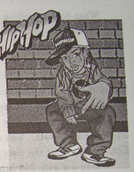题目内容
Imagine that you are going on a trip to Ireland. The first three days of your trip are planned below. Read the schedule and use it to answer the questions below.
Day 1
Morning: Your trip begins in the capital city, Dublin. There you will visit Temple Bar, an area famous for its brightly colored buildings, busy stores and restaurants. Stop by the outdoor market for some cheese and homemade bread.
Afternoon: Walk to Dublin Castle(城堡). Visit the Throne Room to see the golden chair where the kings and queens from England once sat.
Evening: Watch an Irish step-dance performance.
Day 2
Morning: Ride the train to the city of Limerick. Take a tour of King John’s Castle, which has built about 800 years ago.
Afternoon: Ride a boat along the River Shannon.
Evening: Enjoy a nice Irish meal.
Day 3
Mor ning: Ride the train to the city of
Cork. Walk along St. Patrick’s Street, known for its many stores. Feel free to
buy souvenirs.
ning: Ride the train to the city of
Cork. Walk along St. Patrick’s Street, known for its many stores. Feel free to
buy souvenirs.
Afternoon: Take a bus to nearby Blarney Castle. Climb the tower to see the famous Blarney Stone, which is thought to give those who kiss it good luck. Then return to Cork.
Evening: Watch a Gaelic football match. Rest for the next day’s horseback riding lesson.
1. Where can the tourists see the golden chair?
A. At Temple Bar. B. In Dublin Castle
C. On St. Patrick’s Street D. In Blarney Castle.
2. What kind of transportation will the tourists use during the trip?
A. Train, bus and boat. B. Bus, train and plane.
C. Horse, bus and bike. D. Boat, car and bus.
3.How many days will the trip probably last?
A. Only one day B. No more than three days.
C. Exactly two days D. At least four days
1.B
2.A
3.D
【解析】
试题分析:这篇短文中作者主要介绍了岛屿之行的前三天的旅游行程,包括旅游的景点、乘坐的交通工具及一天三个时段的行程安排等信息。
1.细节理解题。根据短文第一天下午的行程Walk to Dublin Castle(城堡). Visit the Throne Room to see the golden chair where the kings and queens from England once sat.可知在Dublin Castle可以看到golden chair;故选B。
2.细节理解题。根据短文第二、三天的行程中提到的交通工具Ride the train to the city of Limerick.,Ride a boat along the River Shannon. 及Take a bus to nearby Blarney Castle.可知A项的交通工具正好相吻合;故选A。
3.细节理解题。根据短文第三天晚上的行程安排Rest for the next day’s horseback riding lesson.可知,第二天还有旅行项目,可知旅行至少持续四天;故选D。
考点:广告类短文阅读。

| |||||||||||||||||||||||||||||||||||||||||||||||||||||||||||
| |||||||||||||||||||||||||||||||||||||||||||||||||||||||||||||||||||||||||

Hip hop or rap (说唱) music as it is also called, started on the street and in the clubs of the New York City in the 1970s . But today many countries have their own kind of hip hop music . This kind of music comes from reggae, disco and funk music . Rapping means speaking to the rhythm of the music, and it is an important part of the music . People rap to express how they feel about their lives and problems .
Rapping in class.
Would you like to rap in class? Well actually, hip pop music is played in more than 10,000 schools in the USA .Why ? There is a new school program called “ Flocabulary ”in which teachers use texts and hip hop CDs to help teach different school subjects . The words of the songs are just what students are studying . This makes learning easy and fun . Students and teachers are excited about the positive results it has had on exam marks . One teacher said, “ I’ve used hip hop songs in class, and I have never seen my students so crazy about history ! You can't imagine how well they imagine how well they remember what I teach ! We even try to write our own songs . ”
Whose idea was Flocabulary?
Blake Harrison, a high school student, was the first person to come up with the idea of Flocabulary . The word “ Flocabulary ” comes from the word “ flow ” and “ vocabulary ” . “ Flow ” is a rap word for “ style ”,or the way a rapper says the words of a song . “ Vocabulary ” means the words you have to learn in a language . How did he get the idea ? Well, he realized he could remember the words of a hip hop song very easily . So,why not make lessons into songs ? Today together with Alex Rappaport, a song writer, Blake produces hip hop songs for maths, science and literature (文学). They are now used in schools with great success .
【小题1】Rap music started _____ in New York city .
| A.in the 1970s | B.In a high school |
| C.in the 19 th century . | D.In a music class . |
| A.Write rap music . | B.Sing a song by talking |
| C.Remember the words of a song . | D.help teach some school subjects. |
| A.bad | B.good | C.final | D.direct |
| A.maths | B.science | C.history | D.literature |

